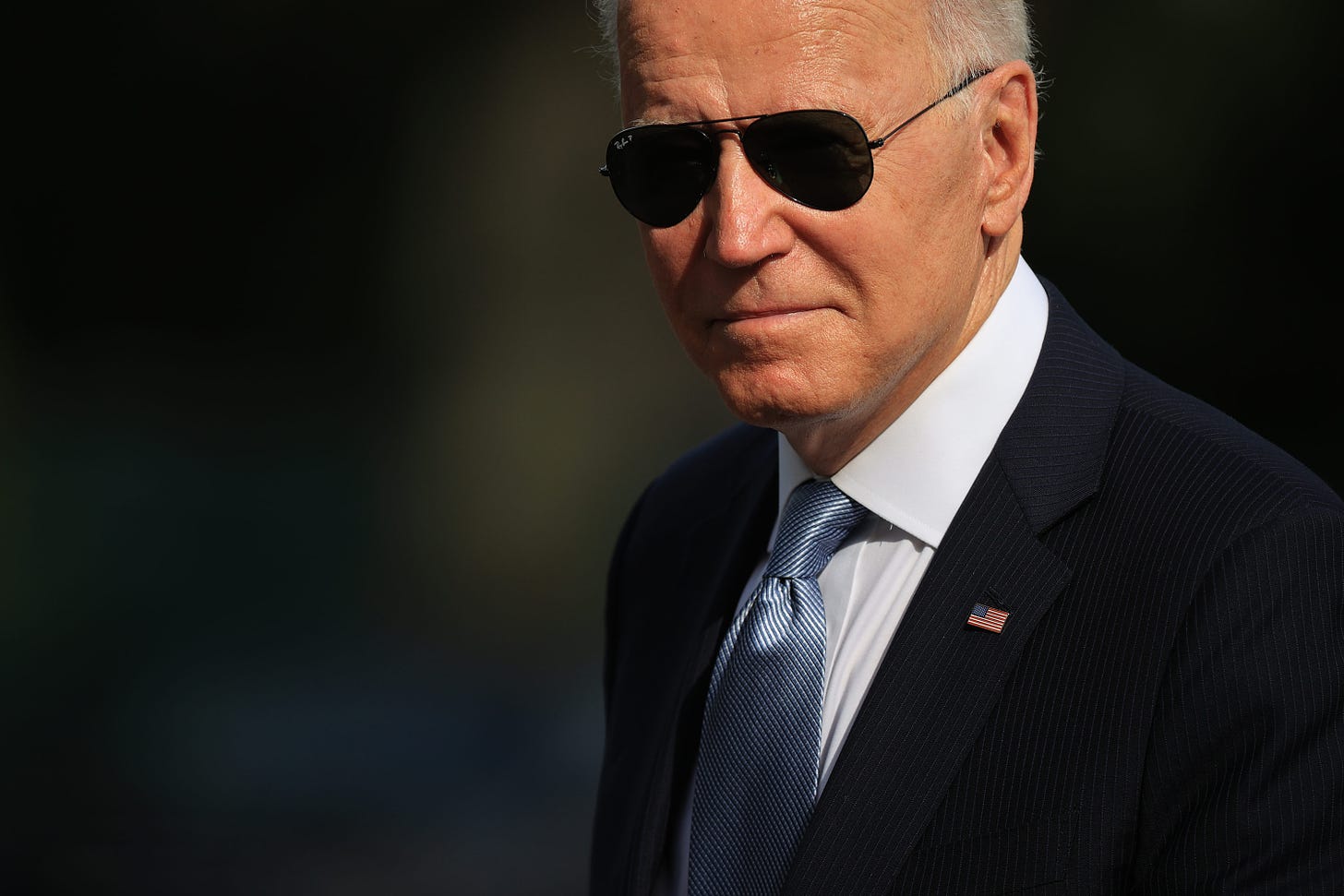Yesterday, Politico published a leaked “tentative” list of invitees for December’s virtual Summit for Democracy, President Joe Biden’s key foreign policy innovation. The long-promised meeting made political sense, as it favorably contrasted Biden with Donald Trump, whose palpable disdain for democracy was a defining fact of his foreign policy and his lies about the 2020 election. And hosting such a summit makes strategic sense because if more countries are healthy liberal democracies, that bodes well for the American liberal world order.
But for some reason—a focus on domestic policy matters, the COVID pandemic—Biden, to the disappointment of democracy enthusiasts, has been making little of his own summit. While the pandemic was no obstacle to Biden’s trip to Glasgow, Scotland, for a climate change summit, the State Department announced that the Democracy Summit would be virtual, giving up all the glamour, symbolism, and side conversations that make summits worth the work.
It’s arguably better to have a virtual Summit for Democracy than not to have one at all, but this one has some serious problems beyond the format—problems that could undermine its purpose. Here are the Good, the Bad, and the Ugly.
The Good: Is Taiwan a country? Yes! The list of invitees leaked to Politico refers to “countries and/or governments invited to the Summit for Democracy in 2021.” And Taiwan is one of them! Now, the qualification of “and/or governments” means that the document remains consistent with the One China policy, but to invite Taiwan is to treat it as the independent democracy that it is.
The Bad: Are Pakistan, the Maldives, and the Democratic Republic of the Congo democracies? No, if you ask any sane person. Yes, if you ask the Biden administration. The three countries are respectively rated 37, 40, and 20 out of 100 by Freedom House, which labels them “partly free,” “partly free,” and “not free,” Yet all three have been invited to participate in the summit.
Of course, there are geostrategic considerations diluting the democratic brew. The United States needs Pakistan’s help to evacuate the remaining American citizens from Afghanistan. As a result, the administration has to count Pakistan as a democracy.
What the Maldives did to earn an invitation to the club in which they clearly don’t belong, your guess is as good as mine.
The Democratic Republic of the Congo, for its part, is valuable as a partner in climate change policy. The country’s rainforest is the second largest in the world, after Brazil’s, and the Congolese government’s deforestation is a serious threat to one of the planet’s major natural resources. Only four days ago, President Félix Tshisekedi pledged to fight deforestation during the Glasgow summit. Perhaps an invitation to the democracy summit is his reward.
But while these compromises serve other purposes, they hurt the cause of democracy, which is the only purpose of the summit. They will demoralize democratic forces, legitimize the brutalities these governments perpetrate, and hurt America’s image among the people of each nation. These regimes can now claim that they have the American imprimatur.
The Ugly: Hungary is not on the list. There are strong arguments for not inviting Hungary. Viktor Orbán is a mini-Putin. Yet Hungary is more democratic and freer than Pakistan—and certainly more than the Democratic Republic of the Congo. (Hungary’s Freedom House score is 69.) So what methodology is the Biden administration using deciding whom to invite? Are they considering not only a country’s level of democracy, but also its direction? In that case, why is India on the list? Maybe Hungary deserves to be excluded as a message about its backsliding, but the Democratic Republic of the Congo hasn’t shown any signs of democratization in years.
The administration has clearly been struggling with a difficult problem: The Venn diagram of democracies and American allies and partners has considerable overlap, but it’s not a perfect circle. Some non-democratic partners made the cut. Some treaty allies didn’t. But it would be a shame if the Summit for Democracy became just a big meeting of Countries America Needs without any further criteria or moral substance—because then what would be the point?




